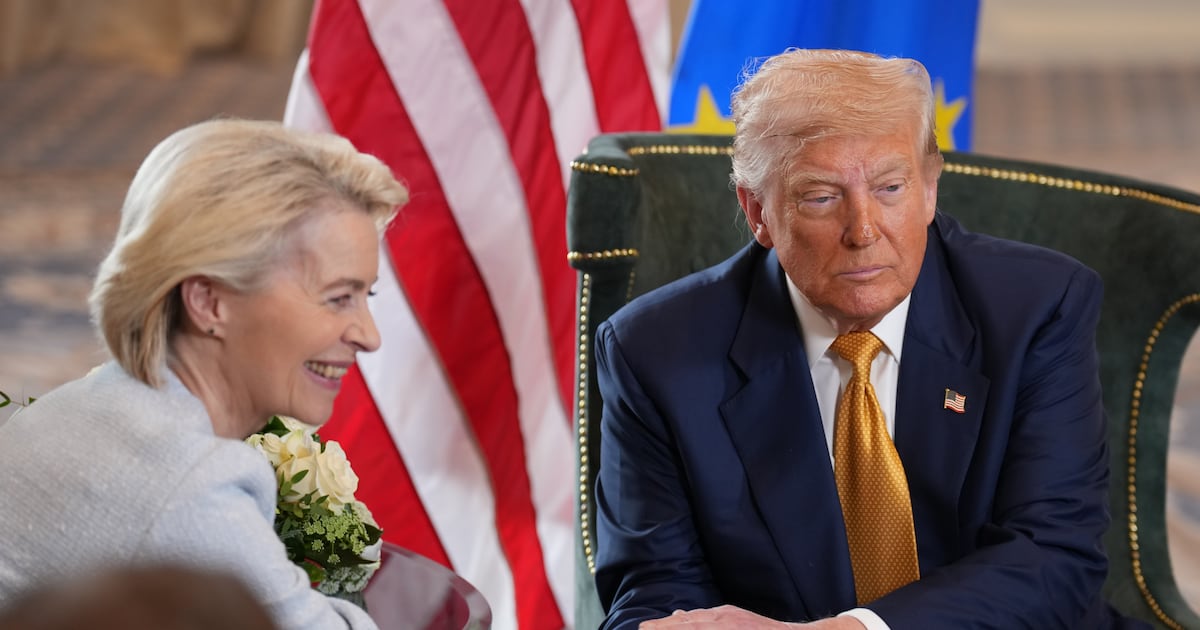Politics
Ireland Must Strategize Amid Evolving Trade Landscape

The recent outline trade agreement between the European Union and the United States has significant implications for Ireland’s economy. If the agreement holds, it alleviates some immediate economic risks, yet it simultaneously highlights the necessity for strategic long-term planning. As Ireland navigates the complexities of international trade, the government faces pressing demands to support local businesses affected by potential tariff hikes.
Short-term measures are crucial for Irish companies exporting to the US, as they grapple with increased costs. Immediate assistance is needed to help these businesses explore alternative markets. However, it is essential for the government to avoid establishing a reliance on ongoing subsidies for exports, particularly those that may not remain economically viable under new tariff conditions. Instead, the focus should be on helping companies adjust to the new trade reality without fostering dependence on state support.
Reassessing Economic Strategy
In the coming months, the Irish Government must revisit its budgetary assumptions. With indications that a full-scale trade war might be averted, the assumptions outlined in the Summer Economic Statement, published recently, may require adjustments rather than a complete overhaul. The impact on various sectors will largely dictate the necessary changes, underscoring the importance of a responsive economic strategy.
Historically, Ireland’s economic model has relied heavily on attracting Foreign Direct Investment (FDI) from the US, positioning itself as a bridge between American and European markets. While it is vital for the government to safeguard this position, the reality remains that challenges persist. Notably, Donald Trump has expressed intentions to incentivize multinationals, particularly in pharmaceuticals, to relocate manufacturing back to the US.
Moreover, the era of relentless globalisation, overseen by entities like the World Trade Organisation, is shifting. This transition demands that Ireland diversify its export markets and enhance its efforts to foster indigenous industries. Such initiatives are long-term projects and will not yield immediate results.
Revamping Policy Focus
Despite some support for domestic firms, policy measures have predominantly prioritised FDI. This trend must change to ensure a balanced allocation of resources and attention to both foreign and local enterprises. Improving the environment for both FDI and homegrown investment necessitates critical upgrades to infrastructure and enhances the skills of the workforce.
These areas have suffered from neglect in recent years, and the consequences have become increasingly evident. The government’s forthcoming strategy for competitiveness, expected to be unveiled in autumn 2025, must address these challenges comprehensively. It cannot merely reiterate existing policies; instead, it must present innovative solutions to ensure Ireland’s economic resilience in a rapidly changing global landscape.
-

 Top Stories3 months ago
Top Stories3 months agoTributes Surge for 9-Year-Old Leon Briody After Cancer Battle
-

 Entertainment4 months ago
Entertainment4 months agoAimee Osbourne Joins Family for Emotional Tribute to Ozzy
-

 Politics4 months ago
Politics4 months agoDanny Healy-Rae Considers Complaint After Altercation with Garda
-

 Top Stories4 months ago
Top Stories4 months agoIreland Enjoys Summer Heat as Hurricane Erin Approaches Atlantic
-

 World5 months ago
World5 months agoHawaii Commemorates 80 Years Since Hiroshima Bombing with Ceremony
-

 Top Stories3 months ago
Top Stories3 months agoNewcastle West Woman Patricia Foley Found Safe After Urgent Search
-

 Top Stories5 months ago
Top Stories5 months agoFianna Fáil TDs Urgently Consider Maire Geoghegan-Quinn for Presidency
-

 World5 months ago
World5 months agoCouple Convicted of Murdering Two-Year-Old Grandson in Wales
-

 World5 months ago
World5 months agoGaza Aid Distribution Tragedy: 20 Killed Amid Ongoing Violence
-

 World5 months ago
World5 months agoAristocrat Constance Marten and Partner Convicted of Infant Murder
-

 Top Stories4 months ago
Top Stories4 months agoClimbing Errigal: A Must-Do Summer Adventure in Donegal
-

 Top Stories4 months ago
Top Stories4 months agoHike Donegal’s Errigal Mountain NOW for Unforgettable Summer Views









